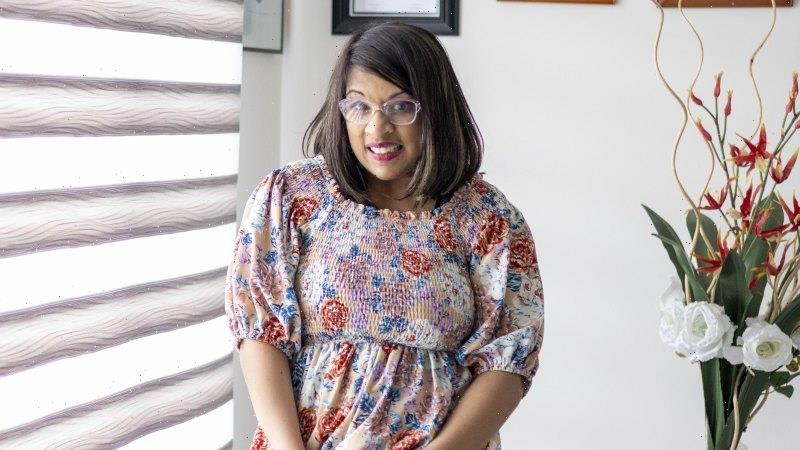Gaining entry into medical school is notoriously difficult, but Jerusha Mather believes the odds against her becoming a doctor are stacked even higher.
Mather, 27, has cerebral palsy, which affects her speech and physical capabilities. Her cognition, however, is undiminished. She has completed a biomedical sciences degree, with honours, as part of her long-held plan to study medicine.
The one barrier preventing that goal from being fulfilled, Mather believes, is the gruelling 5¼-hour admissions test facing all prospective medical students, the Graduate Australian Medical School Admissions Test, known as the GAMSAT.
Jerusha Mather, who has cerebral palsy, is taking legal action to make it easier for people with disabilities get into med school. Credit:Wayne Taylor
For six years, Mather has sought special consideration to allow people with disabilities to sit the GAMSAT in a way that gives them the best opportunity for a good result.
The PhD student has tried to complete the exam using a scribe twice, but has not reached the interview stage set aside for those who perform the strongest.
“I’ve given up now,” she said.
“I am not one to complain but I feel like it’s really unfair what they are doing. I think people with a disability should be given a chance, they should be given an equal opportunity to do medical school.”
Mather recently filed court documents in the Federal Circuit and Family Court alleging unlawful discrimination against seven universities across Australia by making it a requirement for people with disabilities to complete the GAMSAT.
“The nature and structure of the GAMSAT discriminates against people with disabilities,” her application lodged under human rights legislation states.
“People with disabilities often learn and process information differently than abled bodies persons and are required to adapt on account of their disabilities.”
Mather said the difficulties she faced sitting the GAMSAT involved not being able to use handwriting to figure out answers and needing to tell a scribe what to write when she hadn’t worked with them before.
Jerusha Mather’s action in the Federal Circuit and Family Court challenges the approach taken by top universities.Credit:Wayne Taylor
“You have to be articulate in your lengthy answers, that’s very difficult for me. Because I have to formulate the scenario in my head, manipulate the formulas and draw stuff and then articulate that to the scribe,” she said.
“Because of the complex working out and reasoning, it’s extremely arduous. It’s very time-consuming. You have to do a lot of speed reading as well, which is incredibly hard for me.”
The universities named in the legal action are Griffith University, the University of Queensland, the University of Notre Dame, the University of Western Australia, the University of Sydney, the University of Melbourne and Deakin University.
As part of her legal action, Mather wants the universities to reserve no less than 5 per cent of places in their medical programs for people with disabilities.
She is also seeking for the GAMSAT to be scrapped for those who have a certain level of disability and replaced by an interview process that would judge applicants on commitment and motivation; empathy and ethical reasoning; communication and teamwork, and critical thinking.
Students would need strong marks in their undergraduate degree to apply.
Mather has also started a petition calling on people to support her campaign to make medical colleges more open to people with disabilities.
The Australian Council for Educational Research, which runs the GAMSAT, offers people with disabilities the opportunity to apply for “reasonable adjustments” when sitting the exam, but no special consideration is given for test results.
“Under no circumstances will scores be adjusted to account for any perceived disadvantage,” the GAMSAT info booklet states. Since 2020, the GAMSAT has been a computer-based test.
Mather said it was a concern that people with disabilities were unable to get into medicine.
“I haven’t met anyone who entered medicine with a disability like mine, that began to worry me a bit,” she said.
“People with disabilities are the lowest group represented in medicine.”
Mather said that there were many jobs that people could do in medical fields that did not require physical capacity. She is interested in being a psychiatrist because she likes to listen to people and analyse behaviour.
“I could do well in medicine, but I can’t do the GAMSAT,” she said.
When contacted for comment, most of the seven universities named in the legal action responded by saying they could not comment as the matter was before the courts.
The University of Sydney and University of Queensland added that they were committed to being inclusive and accessible to people with disabilities.
A directions hearing for Mather’s application will take place on October 14.
The Morning Edition newsletter is our guide to the day’s most important and interesting stories, analysis and insights. Sign up here.
Most Viewed in National
From our partners
Source: Read Full Article


